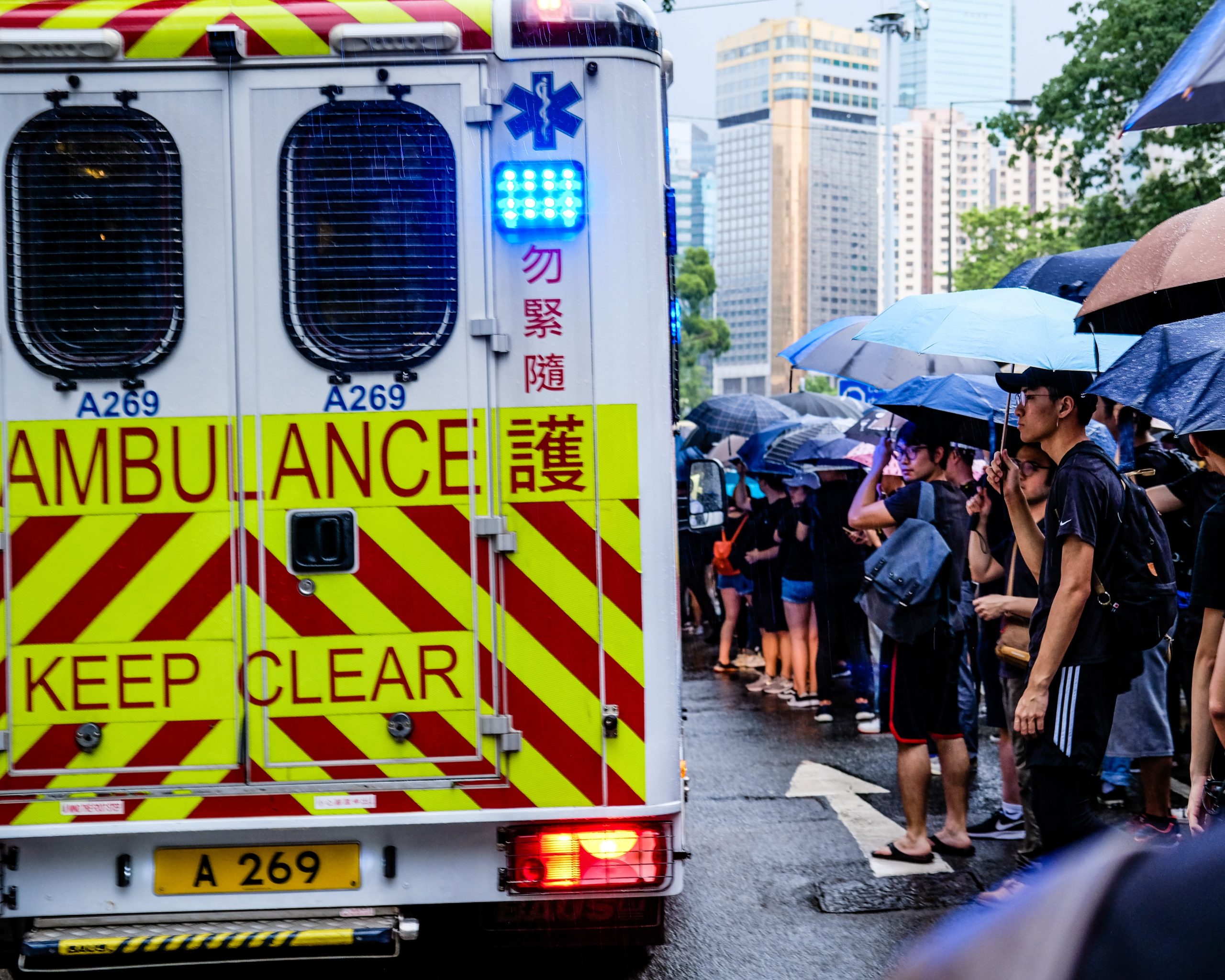You Need an Ambulance. Will Medicare Deny Coverage?

September 18, 2019
Throw rugs can be the cause of a fall at home resulting in a hip fracture. More than 95 percent of hip fractures are due to falls in adults aged 65 and older (according to the Centers for Disease Control). However, an accident at home is not the only reason that you may need transportation somewhere by ambulance.
Whether you are enrolled (or considering enrollment) in Original Medicare or a Medicare Advantage plan, it is crucial to understand when Medicare will cover ambulance services. The following describes ways to ensure that you will not receive an unexpected (and expensive) bill for ambulance services due to Medicare’s denial of coverage following some type of health emergency.
Medicare’s Different Parts and Ambulance Services
Original Medicare beneficiaries normally need to be enrolled in Part B in order to be eligible for ambulance service coverage. Since Plan C (Medicare Advantage) enrollees are required to be enrolled in Part B, a certain level of ambulance coverage typically exists for them.
However, some Original Medicare beneficiaries only enroll in Part A upon initial Medicare enrollment, and decide to forego enrolling in Part B or Part D to avoid the expense. According to the Centers for Medicare Services (CMS), Medicare’s Part B covers 80 percent of the cost for “medically necessary” ambulance transportation to a hospital or skilled nursing facility (although the annual deductible still needs to be met before coverage begins). Anyone covered only by Medicare’s Part A can be denied coverage for ambulance services.
Air Ambulance Costs and Coverage
An injury sustained in a car accident or during your vacation can necessitate rapid delivery to a hospital for life-saving treatment. Air ambulance costs are higher than for ground ambulance services, and the average cost of a single air ambulance trip is between $12,000 – $25,000 (per the National Association of Insurance Commissioners [NAIC]).
The Association of Air Medical Services (AAMS) notes the following as some of the types of medical emergencies that can necessitate air transportation to a hospital:
- Severe burns;
- Spinal injuries (e.g., fractured vertebrae);
- Persistent lack of consciousness (such as due to a head injury);
- Pulmonary or cardiac emergencies;
Original Medicare will not cover the costs of either a ground ambulance or air ambulance when you are outside of the United States (but privately-purchased travel insurance may cover ambulance services during an overseas trip).
Medicare Advantage Plans and Ambulance Coverage
Medicare only pays for ambulance transportation to the nearest medical facility that can provide care for your emergency health issue (and Medicare Advantage enrollees are covered by Medicare’s Part B, so Original Medicare’s coverage terms are applicable).
However, your Medicare Advantage plan may limit your coverage to “in-network” hospitals, so the treatment received at the destination hospital of the emergency ambulance ride may not be covered. For this reason, it is imperative that you understand whether your specific Medicare Advantage plan will cover a hospital visit to one that is not included in their network.
If your Medicare Advantage plan excludes coverage at any hospital that is not “in-network”, your hospital visit may not be covered. Furthermore, Medicare Advantage plans differ in terms of the percentage of ambulance costs covered.
Medicare Supplemental Insurance and Ambulance Trips
You cannot purchase a Medigap plan if you are enrolled in a Medicare Advantage plan. However, Original Medicare allows you to obtain this private Medicare supplemental insurance.
Purchasing a Medigap plan may enable your entire cost of a ground or air ambulance trip to be covered, but this depends upon the particular Medigap plan in which you are enrolled. At UrHealth Benefits, we want you to understand your coverage under your chosen insurance plan (or plans) before you need to use it.
As a Medicare beneficiary, knowing whether emergency ambulance transportation services are covered can lessen your anxiety about driving a long distance to visit your adult children or other relatives.
Request a Quote
send message
UR BENEFITS
GET IN TOUCH
OUR STORY
Individual & Family
Medicare
Small Business
Life Insurance
Supplemental
About Us
Our Philosophy
Join Our Team
2500 N Federal Hwy, Fort Lauderdale, FL 33305
954-256-5356
Resources
Carriers
Information
Events